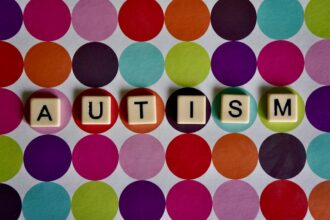Depersonalization and derealization are psychological phenomena that can leave you feeling detached from your own thoughts, feelings, or sense of self. When you experience depersonalization, you may feel as though you are an outside observer of your own life, as if you are watching yourself from a distance.
On the other hand, derealization involves a sense of detachment from your surroundings. You might perceive the world around you as strange, dreamlike, or distorted, making it difficult to connect with your environment. These experiences can be unsettling and disorienting, often leading to confusion and anxiety.
While they can occur in isolation, they frequently manifest together, creating a complex interplay of feelings that can be challenging to navigate. Understanding these phenomena is crucial for recognizing their impact on your mental health and well-being. They are not uncommon; many people may experience brief episodes of depersonalization or derealization at some point in their lives, particularly during times of stress or fatigue.
Key Takeaways
- Depersonalization is a mental health condition characterized by feeling detached from oneself, while derealization involves feeling detached from the surrounding environment.
- Symptoms of depersonalization and derealization may include feeling like an outside observer of one’s thoughts or body, experiencing a sense of unreality, and feeling emotionally numb.
- Causes of depersonalization and derealization may include trauma, stress, anxiety, depression, and substance abuse.
- Diagnosis of depersonalization and derealization involves a thorough evaluation of symptoms, medical history, and ruling out other potential causes.
- Treatment options for depersonalization and derealization may include therapy, medication, stress management techniques, and lifestyle changes.
Symptoms of Depersonalization and Derealization
The symptoms of depersonalization and derealization can vary widely from person to person, but they often share common threads. You might find yourself feeling disconnected from your body or thoughts, as if you are observing yourself from a distance. This sensation can lead to a profound sense of confusion about who you are and how you fit into the world around you.
You may also experience emotional numbness, where feelings seem muted or absent altogether, making it difficult to engage with your emotions or those of others. In terms of derealization, the world around you may appear distorted or unreal. You might notice that familiar places seem strange or that people appear as if they are part of a dream.
This altered perception can lead to feelings of anxiety and fear, as the world feels unpredictable and untrustworthy. Both conditions can be accompanied by physical symptoms such as dizziness, lightheadedness, or a racing heart, which can further exacerbate feelings of panic and disorientation.
Causes of Depersonalization and Derealization

The causes of depersonalization and derealization are complex and multifaceted.
For instance, if you have gone through a significant life event such as the loss of a loved one, a serious accident, or prolonged emotional distress, your mind may resort to these coping mechanisms as a way to protect itself from overwhelming feelings.
This dissociative response can serve as a temporary escape from reality when the emotional burden becomes too heavy to bear. Additionally, certain mental health disorders can contribute to the onset of depersonalization and derealization. Conditions such as anxiety disorders, depression, and post-traumatic stress disorder (PTSD) are often linked with these experiences.
Substance use can also play a role; for example, the use of hallucinogenic drugs or excessive alcohol consumption can induce feelings of detachment. Understanding the underlying causes is essential for addressing these symptoms effectively and finding appropriate treatment options.
Diagnosis of Depersonalization and Derealization
| Diagnosis of Depersonalization and Derealization | |
|---|---|
| Prevalence | 1-2% of the population |
| Age of Onset | Usually occurs in late adolescence or early adulthood |
| Diagnostic Criteria | Presence of persistent or recurrent experiences of depersonalization, derealization, or both |
| Duration | Episodes may last for hours, days, weeks, or even years |
| Associated Conditions | Often co-occurs with anxiety, depression, and trauma-related disorders |
Diagnosing depersonalization and derealization typically involves a comprehensive evaluation by a mental health professional. During this process, you may be asked about your symptoms, their duration, and any potential triggers that may have contributed to their onset. It is important to provide detailed information about your experiences so that the clinician can make an accurate assessment.
The Diagnostic and Statistical Manual of Mental Disorders (DSM-5) outlines specific criteria for diagnosing depersonalization/derealization disorder, which includes persistent or recurrent episodes that cause significant distress or impairment in functioning. In some cases, your healthcare provider may also conduct physical examinations or laboratory tests to rule out other medical conditions that could be contributing to your symptoms. This thorough approach ensures that any underlying issues are addressed while also focusing on the psychological aspects of your experience.
A proper diagnosis is crucial for developing an effective treatment plan tailored to your specific needs.
Treatment Options for Depersonalization and Derealization
When it comes to treating depersonalization and derealization, various options are available depending on the severity of your symptoms and their underlying causes. Psychotherapy is often considered one of the most effective approaches. Cognitive-behavioral therapy (CBT) can help you identify negative thought patterns associated with your experiences and develop healthier coping strategies.
Through therapy, you can work towards understanding the root causes of your feelings of detachment and learn techniques to ground yourself in reality. In some cases, medication may be prescribed to help alleviate symptoms associated with anxiety or depression that may be contributing to your experiences. Antidepressants or anti-anxiety medications can provide relief for some individuals, but it is essential to work closely with your healthcare provider to determine the best course of action for your situation.
Combining therapy with medication often yields the best results in managing depersonalization and derealization.
Coping Strategies for Depersonalization and Derealization

In addition to professional treatment options, there are several coping strategies you can employ to manage episodes of depersonalization and derealization on your own. Grounding techniques can be particularly helpful in bringing you back to the present moment when you feel detached from reality. These techniques may include focusing on your breath, engaging in physical activities like walking or stretching, or using sensory experiences such as holding an object with texture or listening to calming music.
Mindfulness practices can also be beneficial in reducing feelings of anxiety associated with these experiences. By cultivating awareness of your thoughts and feelings without judgment, you can create a sense of acceptance around your experiences rather than fighting against them. Journaling about your feelings can provide an outlet for expression and help you process what you’re going through.
Finding supportive communities—whether online or in-person—can also foster connection and understanding as you navigate these challenges.
Impact on Daily Life and Relationships
The impact of depersonalization and derealization on daily life can be profound. You may find it challenging to engage in everyday activities or maintain focus at work or school due to feelings of detachment. This disconnection can lead to difficulties in forming relationships with others, as you might struggle to connect emotionally or feel present during social interactions.
Friends and family may not understand what you’re experiencing, which can create feelings of isolation and frustration. Moreover, the unpredictability of these episodes can lead to increased anxiety about when they might occur again. This fear can further exacerbate feelings of detachment, creating a cycle that is hard to break.
It’s essential to communicate openly with those close to you about what you’re experiencing so they can offer support and understanding during difficult times.
Depersonalization and Derealization in Mental Health Disorders
Depersonalization and derealization are often associated with various mental health disorders, making it crucial to understand their role within these contexts. For instance, individuals with anxiety disorders frequently report episodes of depersonalization as a response to overwhelming stress or panic attacks. Similarly, those with depression may experience feelings of detachment as part of their emotional numbness.
Post-traumatic stress disorder (PTSD) is another condition where depersonalization and derealization can manifest as coping mechanisms following traumatic events. In these cases, dissociation serves as a protective response against the emotional pain associated with memories of trauma. Recognizing the interplay between these experiences and mental health disorders is vital for developing effective treatment plans that address both the symptoms and underlying issues.
Depersonalization and Derealization in Trauma and Stress
Trauma and stress are significant contributors to the onset of depersonalization and derealization experiences. When faced with overwhelming situations—such as abuse, accidents, or natural disasters—your mind may resort to dissociation as a means of coping with the emotional fallout. This response allows you to distance yourself from the pain associated with these events but can lead to long-term challenges if not addressed appropriately.
Understanding how trauma influences these experiences is essential for healing. Therapeutic approaches that focus on trauma-informed care can help you process past events while developing healthier coping mechanisms for managing stress in the present. Engaging in practices such as EMDR (Eye Movement Desensitization and Reprocessing) therapy has shown promise in helping individuals work through traumatic memories while reducing symptoms of depersonalization and derealization.
Research and Studies on Depersonalization and Derealization
Research into depersonalization and derealization has expanded over recent years, shedding light on their prevalence and impact on mental health. Studies indicate that these experiences are more common than previously thought, affecting a significant portion of the population at some point in their lives. Researchers have explored various factors contributing to these phenomena, including neurobiological mechanisms that underlie dissociative responses.
Additionally, studies have examined the effectiveness of different treatment modalities for managing symptoms associated with depersonalization and derealization. Findings suggest that combining psychotherapy with medication often yields better outcomes than either approach alone. Ongoing research continues to explore innovative therapeutic techniques aimed at alleviating symptoms while enhancing overall well-being.
Seeking Help for Depersonalization and Derealization
If you find yourself struggling with depersonalization or derealization, seeking help is an important step toward regaining control over your life. Mental health professionals can provide valuable support through therapy and medication management tailored specifically to your needs. It’s essential to reach out for help rather than trying to navigate these experiences alone.
You deserve understanding and support as you work through these challenges. Whether through individual therapy sessions or support groups where you can connect with others who share similar experiences, taking that first step toward seeking help can lead to significant improvements in your quality of life. Remember that recovery is possible; with the right resources and support systems in place, you can learn to manage depersonalization and derealization effectively while reclaiming your sense of self and connection to the world around you.
In understanding the nuances between depersonalization and derealization, it’s essential to delve into the psychological underpinnings that differentiate these two experiences. Depersonalization refers to a feeling of detachment from one’s own body or self, as if observing oneself from outside, while derealization involves a sense of unreality or detachment from the external world. For a more comprehensive exploration of these concepts, you can refer to an insightful article on the topic available at Unplugged Psych. This resource provides valuable information that can help in distinguishing between these often conflated psychological phenomena.
Learn More About Depersonalization & Derealization
FAQs
What is depersonalization?
Depersonalization is a mental health condition characterized by feeling detached from one’s thoughts, feelings, and sensations. It can also involve feeling like an outside observer of one’s own body or actions.
What is derealization?
Derealization is a mental health condition characterized by feeling detached from one’s surroundings. It can involve feeling like the world is unreal or distorted, or like one is living in a dream.
What are the differences between depersonalization and derealization?
Depersonalization involves feeling detached from oneself, while derealization involves feeling detached from one’s surroundings. Both can occur together, but they are distinct experiences.
What are the potential causes of depersonalization and derealization?
Depersonalization and derealization can be caused by various factors, including trauma, stress, anxiety, depression, substance abuse, and certain mental health disorders.
How are depersonalization and derealization diagnosed?
Depersonalization and derealization are typically diagnosed based on a person’s reported symptoms and experiences. A mental health professional may also conduct a thorough evaluation to rule out other potential causes.
What are the treatment options for depersonalization and derealization?
Treatment for depersonalization and derealization may include therapy, medication, and lifestyle changes. Cognitive-behavioral therapy (CBT) and mindfulness-based approaches are commonly used to address these symptoms. It’s important for individuals to seek professional help for an accurate diagnosis and appropriate treatment plan.




